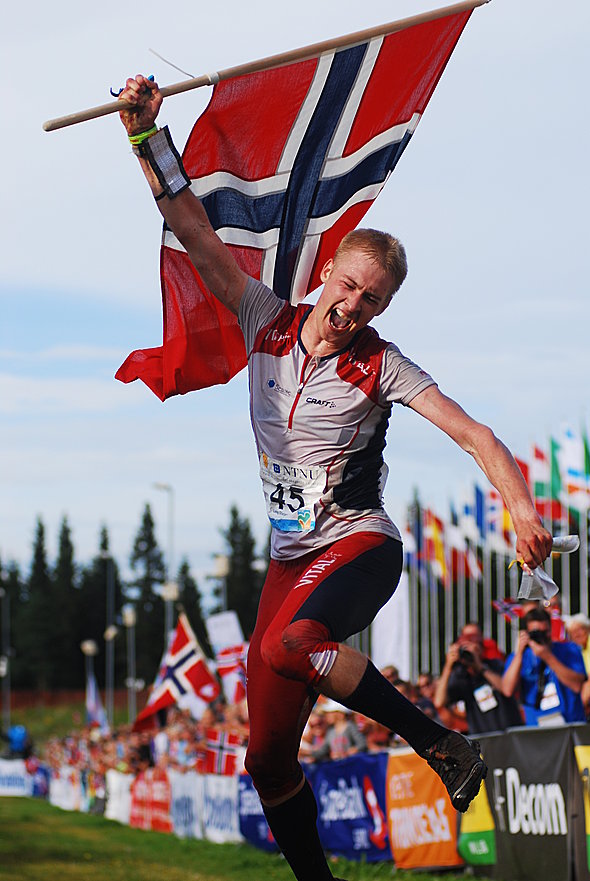
Day 1 Sprint, Day 2 Sprint mixed relay, Day 4 Chasing start, Day 5 Long Final, Day 7 Middle Final and Day 8 Relay – that is one suggestions about what the future WOC week may look like. The WOC in the future (WIF) project is one of the topics discussed at the IOF Joint Meeting and Map Commission meeting in Helsinki today.
All attendees at the meeting in Helsinki were divided into 7 groups, and asked to form an attractive (media, elites…) WOC week. This gave 7 different ideas for the program of the WOC week in the future – the one given above is one of the 4 which “resonated the most” in the discussions, according to reports at the Facebook page of Olles maps.
– Leho Haldna and Björn Persson presented the WIF first, especially the constraints set by Trondheim General Assembly (8 days, new mass start event included, new mixed relay included).
In the table below, you see 7 different ideas for the program of the WOC week in the future. For suggestion number 7 there is a separate sprint WOC. The suggestions which “resonated the most” are shown in bold.
| Day 1 | Day 2 | Day 3 | Day 4 | Day 5 | Day 6 | Day 7 | Day 8 | |
|---|---|---|---|---|---|---|---|---|
| 1 | Sprint Q/F | Sprint Mixed Relay | – | Chase Start Event | Long F | – | Middle F | Relay |
| 2 | Sprint Mixed Relay | Sprint Q/F | – | Middle F | Chase Start Event | – | Relay | Long F |
| 3 | Sprint Q/F | Mixed Relay | Middle Q | – | Relay | – | Middle F – Chase Start | Long F |
| 4 | Sprint Q/F | Mixed Relay | Long F | – | Middle F | Relay | ||
| 5 | Sprint Q/F | Sprint Mixed Relay | – | Middle Q | Middle F – Chase Start | – | Long F | Relay |
| 6 | Sprint Q/F | Sprint Mixed Relay | – | Long F | Middle Q/F | – | Chase Start Event | Relay |
| 7 | Mixed Relay Q | Mixed Relay F | – | Middle Q | Middle F | – | Long F | Relay |
Note that when no qualification is on the suggested program for a discipline, the qualification is done outside the WOC week or through WRE, Regional Champs or quotas.
Background
A work group for the WOC of the future has been formed as described on the IOF page here. The project group consists of Leho Haldna, Vincent Frey, Mike Dowling, Konrad Becker, Emil Wingstedt, Sarah Rollins, Jørn Sundby and Thomas Bührer. You find a long background article here at World of O about WOC in the future. The first draft of WIF (WOC in the future) shall be ready in May 2010 – to be presented at the Presidents’ Conference in France at WOC 2010 in August.
Observations
Some observations:
- All suggestions include both a relay and a mixed relay – all the four suggestions which “resonated the most” have a sprint mixed relay.
- For most suggestions the WOC starts with a “sprint weekend”.
- No suggestions have a long qualification – only two of the ones “resonating the most” have a middle qualification
- Two of the suggestions replaces today’s middle distance with a chasing start middle distance event.
What do you think about these suggestions? Do you like the idea of a “sprint weekend”? What do you think about getting rid of qualifications in the WOC week – instead letting runners qualify ahead of the WOC week? Is it a good idea to have two relays on the program?
 World of O News
World of O News
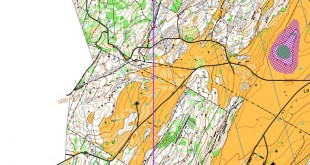
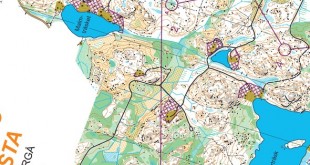
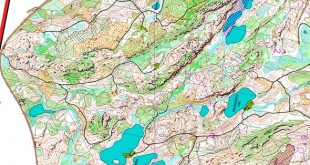
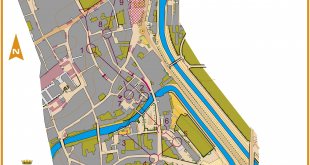
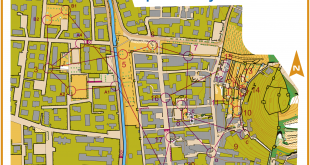
Isn’t there a possibility without a mixed relay?
Orienteering is an individual sport, so why put 2 relays in 1 WOC? Seems a stupid idea to me, but that’s just my opinion…
There are three guiding principles for the work: the WOC program should diversify, the WOC week should remain within eight days, and a new [mixed] relay should be introduced. And it looks like nobody wanted to remove the relays we have today – therefore they put two relays on the suggested programs.
However, based on some discussions I’ve had, I’m not sure it is probable that we will see two relays in the WOC programme – and then the question is if one follows the guiding principles and as a consequence of that removed the relays we have today, or instead just keep the relay as today except for shortening the legs down to around 25-30 minutes…
On what discipline should based start list for chase start?
How are Long F/Middle F runners selected if there no more Qualification anymore?
As it is written in the article text above, the qualification is to be done either in races ahead of the WOC week, or through the World Ranking, through Regional Champs or through quotas. Another possibility which has come up earlier is to use e.g. a chasing start race as a qualification race for the long final.
Note however that the table above is only suggestions by attendees at the IOF Joint Meeting and Map Commission meeting in Helsinki (divided into 7 groups who each could come up with their best ideas), and not the suggestions by the actual work group. Thus, these people have not had to think through all aspects of the WOC program (i.e. political reasons, what the smaller nations need, etc.). That means that they have probably also not thought about all aspect regarding qualification.
just saw NOTE above,ups
What if I just came back to the national team after break.I haven’t competed in WRE for a while.
Can I qualify for the the L/M Final just being from national team?
How many champions we want to have? With alternative 5 we get 1 more and with all other options 2 more. Maybe one more is enough.
One of your voting options should have been ‘None of the above’.
I am afraid most would have chosen that option then – that’s why I didn’t include it…
Jan, you should include a “None of the above”. Polling here may be used to promote certain choices.
You saw how p***ed off many athletes were with aspects of WOC 2010. WOC is too important to mess around with willy-nilly.
I don’t understand what the problem would be with good TV coverage of the current format.
The problem with putting up “none of the above” is that we wouldn’t get any real input about he suggested solutions, as most(?) would just tick off “none of the above”. Based on decisions made, all points towards changes being made – the important thing now is to get the changes right, I suppose?
Well… I’m not voting for any of them…
Thanks for publicising this anyhow.
That’s an intresting and veeery insightful point.
… I could put up a separate poll with only “One of the above” or “Keep today’s program”…?
“… orienteering is an individual sport…”
Two views on this. By being an individual sport we cut ourselves off from many people who prefer team sports. I find that heaps of people like taking part in pairs or teams and we should experiment with different arrangements.
Second, such experimentation shouldn’t happen in the world championship. Just as with the abandoned micro format, the top competition in the world should consist of formats that are WIDELY practised round the world. The IOF is conspicuously absent from any sort of development activity.
“… orienteering is an individual sport…”
Two thoughts. By concentrating on individual forms of orienteering we cut ourselves off from the many people who prefer to take part in team sports. We should experiment with more team forms of orienteering. (The relay is only just a team event.)
But the world championship should only include forms of orienteering that are widely practised round the world. The abandoned micro orienteering was IMO not then a suitable format for a world championship, and is not even suitable now – AFAIK few countries are doing it. The IOF doesn’t seem to help federations with any sort of format development.
I am open for new ideas and I bet that a sprint relay could be a lot of fun to take part in. But what I cannot understand is that people would be interested in a Middle Final chase start. The middle is a great race to test the athletes technical skills and this component would be lost in a chase start. I would certainly be a lot less interested in running at the world champs without a “normal” final in all three disciplines (sprint, middle, long).
I like middle as you described but this is true just for Final in most cases. Maybe nobody wants easier and shorter qualifications anymore. I would instead of Middle F – chasing start vote for two runs. Middle 1st and 2nd run with individual interval start, reverse order in 2nd run. Courses should be equally very similar in length and also technically, so you must show your skills on both courses.
Why put all the buns in one basket? Two different world champs is more fun.
Let’s keep the traditional WOC every odd year with Sprint, Middle, Long and Relay with qualification races. And have a new kind of games every even year with Mass start, Ultra long, Sprint relay and Multi-day champions, for example like this:
Day 1: Mass start (60-70 min winning time for Men).
Day 2: Sprint (individual start time, 30 sec interval).
Day 3: Day of rest.
Day 4: Ultra long (chasing start, 120-130 winning time for M, possible bonus seconds earned along the course based on individual times, not position)
Day 5: Day of mixed sprint relay (chance for sprint specialists not taking part to ultra long and/or multiday champs)
Day 6: Shortened long (60-70 min for M, individual starting times in reversed order, possible bonus secs earned along the course).
Day 7: Middle (ind. start times in rev. order, poss. bonus secs earned at the finish).
Day 8: Multi-day finale: Long distance, chasing start (bonus secs deducted)
For the first three days there should be as many participants as possible. If selection is needed it could be done by how nations did in the previous champs, like in figure skating.
After the ultra long and shortened long there should be a reduction to some 60 and 40 starters.
The bonus seconds could be omitted if not needed.
Every discipline is TV friendly. Of the Ultra long could be shown only the first finishers with possible taped highlights of the beginning of the course.
Accordingly of the Shortened long distance there could be shown only the last finishers on TV.
Now when we have WOC every year and the World cup lost its status the Multi-day championship would promote orienteering as it’s original form of tough endurance sport.
How do changes in the WOC-program every ten years or so and more and more disciplines/world champions help to make orienteering more popular or more interesting for the media?
Is it worth to make so many compromises to our beloved sport and it’s soul just to get into the olympic games?
Why do we try to get more and more attention by “bringing orienteering to the people”. Shouldn’t it be the other way round?
As to what most of the week is made up of I’m fairly open but rather conservative – new formats should be tested at WC level before WOC.
But the LONG RACE should be on the LAST DAY!
Skiing have their 50km on the last day… The reason is quite simple – it is impossible to recover properly from this race regardless how many rest days there are after it in the week. So long as it’s placed before the last race, teams and runners will prioritise runners for certain distance and the best may not run the long because they are saving themselves for other distances. I have done this myself a couple of times. What’s more, if a team have enough fresh runners for all distances it disadvantages those small poorer teams who only have 3-4 runners who try and run everything… these countries should really be pushing for this change…
If the relay had a tecnical terrain/course and an effective forking-system, it would contain the essens of mass-start and chasing-start, thereby making these unnecessary…
I cannot understand the need for changes. What is is we want to achieve? I know a goal of IOF is to promote Orienteering to the Olympics, but does a change WOC-program, mass-start or mixed relay put orienteering on the olympic program. No way.
What we need to do, is to learn how to produce orienteering for a TV-screen, and how to communicate the challenge of the course. If a TV-viewer want to se endurance sports, they choose marathon, 10k running, triathlon or cross country skiing. It is easy to understand, and the speed of the athletes is much higher(looks more impresive) comparede to orienteering. If we want to be included, we need to present something completely different. The sport of orienteering is good enough for the Olympics, thats the truth.
Why Mixed relay? Biathlon includes mixed relay, but does anyone care? All big nations(except Sweden) gives mixed relay lowest priority. There is absolutely no reason to include an extra relay in the WOC program, and also no idea of changing the existing relays at WOC
Mass-start why? If this is what should bring orienteering to the olympics, no chance. It will be a big group running in a forrest together, sprinting for the victory. Much more fun to watch triathlon or the mens 10k races.
The only “new” distance that could bring something new to the summer olympics, and be different from the old WOC program is the knock-out-sprint. The intensity in Stockholm was great, this has some potential. But again, the normal sprint has potential as well. All we need is good TV-production, a good commentator, GPS tracking, well placed TC-controls, a great and challeging course, and we are go for the Olympics.
New ideas out – WOC as usual is the real deal.
It’s quite a peculiar approach to first define which events are to be held and then just have a discussion on in what order to run them. It’s mock democracy and I don’t give much for anyone who thinks this has anything to do with openness or partaking decisions.
@jw: As I understand it, the WIF work group has used the opportunity to get the opinion of the ones participating in the meeting in Helsinki in order to get input at the start of their process of defining the WOC of the future. I don’t have any problem with that part of the process.
Also, as I understand it, they have got a framework considering which events are to be part of WOC in the future, but there may still be changes (and I wouldn’t bet a lot of money on that the actual future WOC program will really contain all the elements which were agreed on in Trondheim, although it is one of the possible outcomes). Thus there is still a lot of work to be done by the WIF work group – and the question is how the rest of the process is done. I see no problem in having these discussions in Helsinki, however.
What is the problem we are trying to solve? Is it lots of runners complaining of WOC-week? Is it too tough? Is it too short? Too few sprint races? Too little interest from IOC? Too few TV-cameras at WOC? Too much audience?
Please define the problem and than we can give ideas of how to solve it.
Background (and problem definition) is given here:
http://www.orienteering.org/index.php/iof2006/WOC-in-the-Future :
The project has its roots in the Evaluation of Elite Events group, which was launched after the General Assembly in Prostejov, Czech Republic in 2008. An extensive survey of opinions on Elite Events Programme was carried out online in 2009. The survey included 35 questions and got 466 replies from 42 nations in all 6 IOF Regions. Most replies – 55 % – came from athletes. The results were presented at the Presidents’ Conference in 2009. Based on the survey answers, the IOF Council presented guiding principles for a new WOC programme at the General Assembly in Trondheim, Norway in August 2010.
I have not seen the detailed results of the survey, so I can’t help you there. But maybe somebody else has?
Jan, Thanks for you comment to my previous post. But your note on the background illustrates the problem. The development seems to be done in cabinets with only little and sporadic information coming out and without full documentation. It may just be a communications problem…
@jw: What I meant is that it looks like the people making the decisions have got the defined the problem. I fully agree with you that it would have been better if they fully shared the background information. So I guess I misunderstood your comment:)
BTW: I tried to become part of the WIF work group (I sent an email to ask as I think I could contribute), but they unfortunately didn’t want me in there – not even as a reference person :(
How can it be a democracy problem when the basics for WIFs work has been made by IOF Congress in 2010. Here all countries have 1 vote and all material is sent to all Federations before this congress for discussions. It is not some person or group in IOF who has decided to include Mixed Relay and Mass-start, it is all Federations who has fully voted for this.
I think the WOC-program should be a mix of mass/chase starts and individual starts. Only individual starts was ok in the 80’s, but is simply too boring now. A mix is good- keep some of the traditions and introduce new formats.
The task for the 7 groups at the IOF-Meeting was:
Find a new WOC program that fits into 8 days and includes a mixed relay and a mass/chasingstart race.
At the presentation most groups chose the chasing start probably as the lesser of 2 evils compared to mass start. At chasing start you get at least a start interval of 12-60 seconds depending on how long the prologue was (that’s calculated after middle and long results of last WOC).
So the IOF-conclusion was: Everybody is happy with some kind of mass/chasingstart event because all groups put it in. That this had been one of the original demands of the group work was rather neglected…
@Michi: Do you know that this was the conclusion? I wasn’t there, but I guess that the WIF work group got good input about these kind of questions from the group work?
Thats at least what the sport director said when he was analyzing the results of the group work. But I dont really know what the WIF working group worked out because I am usually not so much involved in foot-o questions. I just know what our task was at the group work at the Joint Meeting.
Thanks a lot for the info – very nice to have some first-hand information from somebody who was part of the discussions.
A reply to the IOF:S suggestion (unfortunatly in Swedish):
http://gustavbergman.se/?p=369
A signature protest list (based on a Swedish website) wich aims to conserve the WOC-programme as i is, i.e. NOT adding niether a Mixed relay, Chasing start event nor any similar events to the WOC-programme:
http://www.namninsamling.com/site/get.asp?woc_programme
@Gurvas: Note that the IOF has not come up with anything new at all now. What is reported in this article is all based on the decisions the IOF made last autumn.
The new thing here is that you see what kind of possible choices this framework gives. This could already bee seen last autumn, but when you see what kind of possibilities there are (the 7 ideas brought forward by work groups at the meeting in Helsinki), you get a better grasp of what this means for the future of the sport. Therefore it makes it easier to discuss it…
Could anyone explain the reason for adding a Mixed Relay? I can see the attraction of a Mass / Chasing start (great for TV / spectators) but why is a Mixed Relay better than a normal (Mens/Womens) relay? Or do they just like Relays (as they are TV friendly) so better to have 2 than 1?
In terms of the Qualification Races it will be strange to lose them especially for smaller countries where often the goal is “qualify for the final”. But some of the proposals have Q races for Middle and Sprint so maybe that’s a possible solution, only to lose the Long Q.
Here is the reason for adding a mixed relay according to the report about WOC in the future from IOF (a one page report – this being the paragraph about mixed relay):
In IOF’s competition programme, the relay is a championship format only. An alternative model for the
relay has been developed for, and successfully implemented at, the World Games. This is a single
competition relay with mixed teams consisting of two women and two men. It would be a very strong
statement for orienteering to emphasise our sport’s gender equity and our Olympic ambitions by
organising the same type of relay at WOC as at the World Games. Therefore, the mixed relay should
be part of the future WOC programme. The mixed relay addresses the demands put on modern sport
by TV and media and should as a consequence be the permanent team competition at WOC in the
future.
Regarding qualification races, I agree with you that this will in itself not be good for the “smaller orienteering nations”. My understanding is that the removal of qualification races is thought to be sweetened by introducing race(s) for which all runners get a valid results (i.e. 92nd spot instead of 31st spot in heat B) – this could for example be a mass start or a chasing start.
Many groups had the idea of the mixed relay being a a sprint relay in urban area.
Throwing out the qualifier races was in most cases a compromise of arranging the whole WOC in max. 8 days and adding some disciplines.
Most ideas for the qualification went somewhere in that direction: 1 starter from each country + the best xx runners of the World Ranking List or something like that.
It is nice discussion but it seems that we (general public and spectators) can’t influence on the work of WIF group. We are not organized in the right way as we act as one by one so we don’t have any influence on the decisions taken by WIF. As usually for this kind of project it is strategically wise not to discuss with general public in all aspects. I agreed that project is running very well and that in general most of ideas are not bad, rather good.
As I think more about small federation needs to keep the sport alive than needs of Media, TV and big nations I would like to see what we can really contribute and in which way to get the official response from WIF group about all suggestions, concerns we could bring together?
So, can we organize ourselves (like in other sports – football,…) in this way? One person who will represent us.
Classic terrain WOC every even year with Middle, Long and Relay (with qualification races or not). If not qualification then maybe also Mass start > Long.
City WOC every odd year with Sprint relay, Sprint Q+F, Sprint relay mixed, … – olympic games format
Good opportunities here. The Sprint Qualification should be the first to go. Running a straight final would allow more runners to compete and get the event completed in a shorter time – in 2010 the Sprint took 7 hours to complete from first qualifying start to last finalist finish.